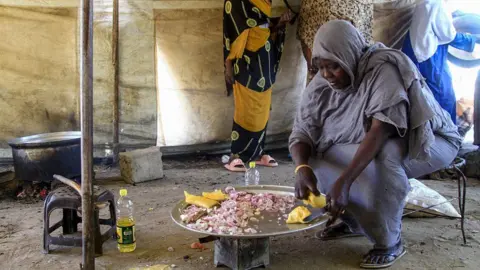
Sudan’s paramilitary Rapid Support Forces commander, General Mohamed Hamdan ‘Hemedti’ Dagalo [File: Ashraf Shazly/AFP]
| Published April 16, 2025
Paramilitary Rapid Support Forces declares rival authority in areas under its control, as the United States expresses alarm over its alleged targeting of civilians in Darfur.
Two years into a brutal civil war that has devastated Sudan, the Rapid Support Forces (RSF) have announced the formation of a rival government to the country’s official military leadership. The move deepens the political divide and escalates a conflict that the United Nations now calls the world’s largest humanitarian crisis.
A Bold Declaration Amid Chaos
RSF leader Mohamed Hamdan “Hemedti” Dagalo unveiled the new administration, claiming it would bring a “realistic future” for Sudan. In a statement released via Telegram, Hemedti said the RSF was committed to building a “state of law” that delivers unity, not domination. “We believe that no tribe, region, or religion holds a monopoly over Sudanese identity,” he wrote.
He vowed that his government would provide critical services—education, healthcare, and infrastructure—across all territories, not just RSF-controlled regions.
A War-Torn Nation Divided
Hemedti’s announcement comes as the RSF continues its bloody power struggle with Sudan’s army chief, Gen. Abdel Fattah al-Burhan. Since the conflict began on April 15, 2023, more than 150,000 people have died and over 12 million have been displaced, according to humanitarian groups.
Recent clashes in North Darfur’s capital, el-Fasher, forced tens of thousands of civilians to flee the Zamzam refugee camp. The displaced were forced to walk 70 kilometers to Tawila, with reports from Médecins Sans Frontières (MSF) detailing children dying of thirst along the way.
More than 700,000 people now face famine-like conditions near el-Fasher, as violence, roadblocks, and looting continue to obstruct aid delivery.

More than 12 million people have been driven from their homes over the two-year conflict
Calls for Peace and International Response
On the war’s grim second anniversary, world leaders convened in London for a high-level conference aimed at addressing the Sudan crisis. UK Foreign Secretary David Lammy announced an additional £120 million ($159 million) in food and medical assistance, calling the ongoing violence a moral failing of the international community.
“Many have given up on Sudan – that is wrong,” Lammy said. “It’s morally wrong when we see so many civilians beheaded, infants as young as one subjected to sexual violence, more people facing famine than anywhere else in the world… We simply cannot look away.”
Despite the renewed aid, peace remains elusive. The African Union, while condemning the violence, rejected any move toward the partition of Sudan by the RSF or the military, urging both sides to agree to an immediate and permanent ceasefire.
War Crimes and a Nation on the Brink
Both the RSF and Sudanese army face serious accusations of war crimes, including mass killings, sexual violence, and genocide. The RSF alone is believed to be responsible for more than 400 civilian deaths in recent months, based on UN reports.
As the humanitarian crisis deepens, Sudan stands at a dangerous crossroads. The rival government declared by Hemedti signals a hardening of divisions and complicates prospects for a negotiated peace. While world leaders pledge support, aid efforts remain hampered, and millions continue to suffer in one of the most tragic and underreported conflicts of the modern era.
SOURCES: BBC NEWS – Paramilitaries declare rival government in Sudan
AL JAZEERA – Sudan paramilitary declares rival government two years into civil war
SKY NEWS – Sudan’s paramilitary chief announces rival government of ‘peace and unity’
FRANCE 24 – Sudan’s paramilitary forces declare rival government two years after civil war erupts





Be the first to comment